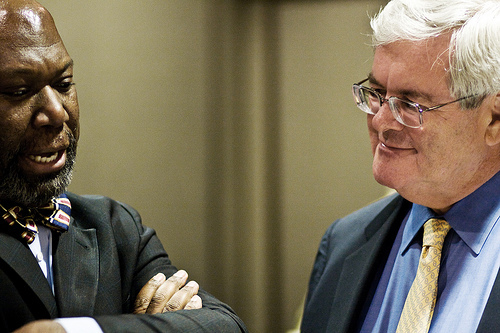Texas wants the federal government to release it from education policies originating with the state’s former governor: the state’s new education commissioner said he will request a No Child Left Behind waiver.
In July, Washington and Wisconsin were granted federal waivers of the 2002 law, making a total of 33 states to accept direct U.S. Education Department oversight and 40 states to request it.
“The timing was right to apply,” said Debbie Ratcliffe, director of communications for the Texas Education Agency. “Texas is currently in the process of developing a new state accountability system. Having both a federal and a state system would be a burden to our schools. The Texas system by far surpasses the federal system, and our districts and campuses are better served by having one strong system. We need less redundancy and more focus on improving student achievement.”
Michael Williams, the state’s new commissioner, made the announcement in September, the first after his appointment.
The state is taking public comment on its plan through September 27, then planning to submit its application in January or February rather than its usual Adequate Yearly Progress report, Ratcliffe said.
NCLB was due for reauthorization in 2007, but so far only the Republican-controlled House of Representatives has managed to pass any related legislation, which has stalled in the Democrat-controlled Senate. Former President George W. Bush proposed what became the law, embedding policies from when he was governor of Texas.
‘Sprawling Set of Mandates’
Texas schools, like most across the country, have struggled to meet federal requirements, with 70 percent of its school districts labeled “failing” under last year’s benchmarks. The law requires states to educate nearly all students to “proficient” levels on standardized tests.
“Texas’ decision to apply for a waiver is not really surprising. NCLB is so onerous it forces states to label so many schools as failing that states are trying to find some leeway,” said Rick Hess, director of education policy studies at the American Enterprise Institute. “NCLB was the last piece of Great Society legislation enacted. All of the good intentions and uneven design characteristics of any Great Society legislation is present in NCLB. It has mostly led to a sprawling set of mandates, requirements, and bureaucracies, which have created enormous problems.”
The waiver would give more control over its accountability system and how it treats failing schools in return for enacting certain policies the Obama administration requires, “and in theory it will be monitored by the Department of Education,” Hess said.
Meddling, or Oversight?
The multiplication of federal overseers and accountability mechanisms will reduce benefits to poor and minority children, who benefited from the decades of accountability-focused reforms that culminated in NCLB, says Sandy Kress, an attorney who helped write the law.
He puts states requesting waivers into two groups: those that “want out of accountability” and those that want “more integrated accountability.”
“The bureaucracies and the unions are tired of being pressed to keep improving education for disadvantaged students. They don’t like choice. They don’t like efficiency. And they don’t like the pressure of accountability,” he said.
Waiting for Details
Kress said Texas likely falls into the group that wants more integrated accountability, but that won’t be evident until its waiver application is published.
“The feds have done a terrible job administratively of implementing NCLB, and the law has language that ought to be clarified and fixed,” he said. “The feds shouldn’t micromanage states on education. But so long as they’re spending our tax dollars, they ought to expect accountability for the money. That’s about all they ought to do.”
Texas has seen a variety of education reform proposals in recent months, most notably with the lieutenant governor publicly announcing he will work to help pass voucher legislation in the next session.
“Texas already has a lot of top-down accountability with its new testing system, which was first used this year,” said James Golson, an education analyst for the Texas Public Policy Foundation. “What the state needs is bottom-up accountability. Parents need to be empowered and given greater flexibility and choice in education for their children.”
Image by Christopher Leonard.




